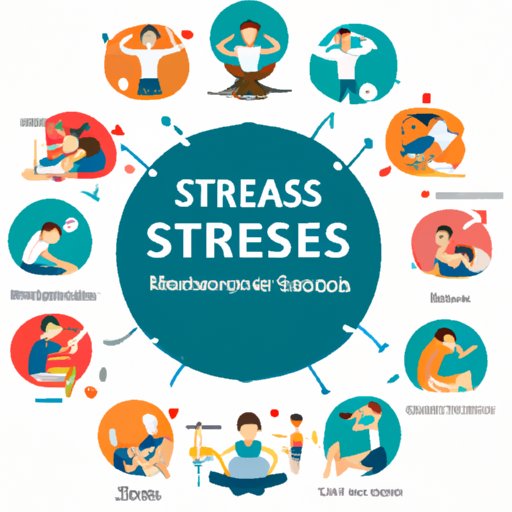
Introduction
Everyone experiences stress at some point in their lives. It can come from many different sources, such as work, relationships, or health issues. A stress period can be overwhelming and affect mental and physical health. However, it’s important to manage stress before it becomes a chronic problem. In this article, we will look at some effective techniques and tips for reducing stress levels.
Meditation and Mindfulness: Techniques to Calm Stressful Thoughts
Mindfulness meditation is a technique used to cultivate awareness of the present moment. It teaches us to pay attention to our thoughts and feelings without judgment, which can reduce anxiety and stress. Mindful breathing and body scan meditation are two examples.
Meditation has been found to reduce the levels of cortisol, a hormone responsible for stress, and to decrease physical symptoms related to stress. Practicing Sanvello, Headspace, or Calm apps is a great way to start.
Take a Break: How to Step Away from Stressful Situations
It’s important to take a break from stressful situations regularly. Some ideas include taking a walk, practicing yoga, or disconnecting from technology. Taking time for yourself and having self-care habits can help reduce stress levels.
Engaging in physical activity, such as yoga or running, promotes the release of endorphins, which can reduce stress and improve mood. Disconnecting from technology and engaging in activities that align with personal values can help improve work-life balance and reduce stress.
Sleep and Stress: The Connection and Ways to Improve Both
The relationship between sleep and stress is complex. Stress can cause problems with falling and staying asleep, and lack of sleep can exacerbate stress levels.
Developing good sleep hygiene habits is essential for reducing stress. Creating a regular sleep schedule, creating a relaxing bedtime routine, and avoiding technology screens can help individuals get better-quality sleep.
Mind Over Matter: The Power of Positive Thinking in Reducing Stress
Positive thinking has been shown to be an effective, simple way to reduce stress levels. Negative thinking can exacerbate stressful situations, while positive thinking can promote a more peaceful and calm state of mind.
By recognizing and challenging negative thoughts and replacing them with positive ones, individuals can reduce stress levels. Positive affirmations, visualization, and practicing gratitude are effective ways to develop a more positive mindset.
Find Your Inner Peace: Exploring Alternative Stress-Reducing Practices
Alternative stress-reducing practices are those that promote overall well-being. They can include acupuncture, aromatherapy, herbal supplements, or massage, among others. While some may seem unconventional, many people have found them helpful in managing stress.
Acupuncture, for example, has been found to reduce cortisol levels and promote relaxation. Herbal supplements may also have an impact on reducing stress levels by affecting cortisol or neurotransmitters.
Talk it Out: The Importance of Communication in Reducing Stress
Communication is essential for healthy relationships and can be a tool for reducing stress levels. Good communication skills can help individuals express themselves better, plan and solve problems, and have harmonious relationships.
Effective communication can reduce stress levels and improve overall well-being. Strategies like active listening, asking open-ended questions, and giving recognition and acknowledgement can help improve communication skills and reduce stress levels.
Conclusion
There are many ways to reduce stress levels, and it’s important to find what works best for each individual. Mindfulness meditation, taking breaks, good sleep hygiene, positive thinking, alternative stress-reducing practices, and communication can all play a role in reducing stress. Remember, self-care is essential for maintaining good mental and physical health. Try different strategies and incorporate them into everyday life to develop a better, healthier way of living.




